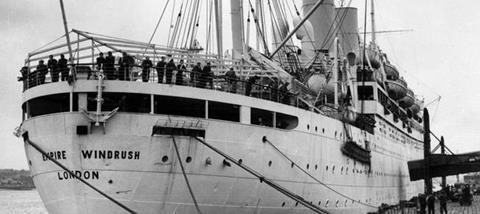
The Windrush affair has damaged a lot of people’s lives. Its racist overtones have also tarnished respect for Britain as a just and liberal society.
It has damaged the Home Office’s credibility as a defender of human rights and it has damaged this Government in the eyes of non-white voters and it could take a generation before the Conservatives regain their trust.
That all this is happening at the same time as Brexit creates a risk that it will be swept under the carpet rather than properly faced and expurgated.
The Windrush was a ship that brought workers from various Caribbean islands to Britain in 1948. They came to meet a need for labour after the war in which many Britons had died. There were 492 on board. Others followed and there are now half a million people resident in the UK who came between 1948 and 1971. Many of them were children who came with their parents and the immigration bureaucracy meant nothing to them then. The influx ended with the 1971 Immigration Act, when the Windrush generation were given indefinite leave to remain.
Population growth has made immigration a sensitive issue. There are currently 66.5 million people here and the forecast is to reach 70 million in the next ten years. There is already a shortage of homes, pressure on school class sizes and long waiting times for treatment in the NHS. At the same time there are serious labour shortages in the NHS, the construction industry and farming that have previously been relieved by immigrant labour. A major motive for choosing to leave the EU is to help reduce immigration.
David Cameron pledged to reduce immigration to “tens of thousands” rather than “hundreds of thousands” in order to ease the pressure on public services and the former Labour welfare Minister, Frank Field, supported this. It was the Home Office, which Theresa May headed from 2010 to 2016, that was responsible for making this happen. At one level the Windrush affair was about how the policy was implemented. The children of the Windrush generation came here on their parent’s passports and had no separate documentation validating their right to be here.
That became a bureaucratic problem when immigration control became a Home Office priority. The problem was exacerbated by a decision in 2009 to destroy the landing cards which were the evidence of when the Windrush children came here. There was no other record of their right to remain here legally which made them vulnerable to official threats of deportation.
As David Lammy MP has rightly said, "these people have done nothing wrong" but have been treated as if they were criminals.
Facing a storm about this injustice the Home Secretary Amber Rudd apologised for the “appalling” way the Windrush generation had been treated, and said any who wanted to become UK citizens could do so without any fees, language or citizenship tests. Theresa May also apologised to the Caribbean heads of state attending the Commonwealth Summit. Records would also be checked to discover if anyone had been wrongly deported. Ms Rudd also hinted at compensation for those who had spent thousands seeking to prove their right to be here.
Politically and morally this was the right response but it exposes deeper issues that need to be faced and addressed.
Some will see this affair as reflecting an underlying racism in British culture. Given that the density of population in the UK is 268 people per square kilometre, second only to Holland in the EU, a case can be made for limiting immigration, but the Brexit campaign certainly showed evidence of a xenophobic hostility to foreigners.
Our duty to love our neighbours regardless of their racial and family backgrounds, following Jesus’ teaching and example, will shape how Christians understand and respond to this distressing and shameful episode in our national life.
Click here for a free sample copy of Premier Christianity magazine



























